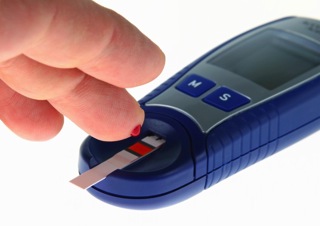
High blood sugar is ground zero for chronic disease: diabetes (obviously), heart disease, dementia, autoimmune disease, chronic pain, and hormone imbalances. Testing your HbA1c on a blood panel can tell you whether high blood sugar is setting you up for major health problems.
High blood sugar can:
- Trigger chronic inflammation, thus setting the stage for autoimmune disease
- Radically imbalance hormones, causing high testosterone in women, high estrogen in men, PCOS, PMS, hormone deficiency, and imbalances in hormones that regulate satiety so that you're always hungry
- Damage the walls of blood vessels
- Damage brain tissue and accelerate brain aging, increasing the risk for dementia (some researchers call Alzheimer's type 3 diabetes)
High blood sugar is also associated with eye disease, kidney disease, nerve damage, and stroke.
Getting a handle on your blood sugar can help you better manage or prevent these radical health imbalances. The HbA1c shows you your average blood sugar levels over the last three months and is a simple way to look at the influence of blood sugar on your health.
HbA1c stands for glycated hemoglobin, which refers to a protein in red blood cells that has bonded with glucose. The higher your HbA1c the higher your blood sugar and the greater your risk for disease.
Using standard lab ranges, an HbA1c less than 5.7 is normal; 5.7%-6.4% indicates pre-diabetes; and if it is 6.5 or higher this indicates diabetes.
However, in functional medicine, we shoot for optimal health and like to see an HbA1c in the range of 4.6%-5.3%. One study shows heart disease risk rises considerably when HbA1c is over 5% and another shows risk is higher when it's over 4.6%.
Although HbA1c is said to look at your average blood sugar levels over the last three months, not everyone's blood adheres to a strict schedule In fact, people with pre-diabetes or diabetes have a higher turnover of blood cells, while those with normal blood sugar have longer lasting red blood cells, so that an HbA1c can reflect the last 5 months.
It's important to look at HbA1c along with a couple of other blood sugar markers. If you're working to manage your blood sugar, a glucometer is very useful to measure blood sugar throughout the day.
Checking fasting blood sugar first thing in the morning before you eat or drink (except water) is a popular indicator of blood sugar health, with optimal ranges being in the low 80s. A fasting blood sugar of 100 mg/dL or higher indicates pre-diabetes in functional medicine (126 mg/dL is considered diabetes).
However, people on very low-carb diets or on ketogenic diets can also have fasting blood sugar around 100. If you're fasting blood sugar is around 100 but your HbA1c and post-prandial (below) blood sugars are healthy, then you know this mechanism is at work.
It's highly useful to look at your blood sugar two hours after meals. This is called post-prandial blood sugar. Optimal blood sugar two hours after a meal should be under 100 to 120 mg/dL.
Lowering blood sugar levels requires eliminating sugar and sweets, minimizing carbohydrate intake (especially processed carbs such as pasta and bread), eating plenty of fiber, avoiding inflammatory foods, and exercising daily. Certain herbs and nutrients can also help lower your blood sugar. Ask my office for advice.



Latest from the Blog
Navigating Tick-Borne Infections: Ozone Therapy as a Holistic Approach to Lyme Disease and Co-Infections
April 8, 2024Tick-borne infections, particularly Lyme disease and its co-infections, pose a significant health challenge for individuals worldwide. Characterized by complex symptoms and often elusive diagnoses, these infections can wreak havoc on the body’s immune system and overall well-being. Amidst the conventional treatments available, there’s a growing interest in exploring complementary therapies such as ozone therapy within […] Read more
Latest from the Blog
Unlocking Hope: Ozone Therapy as a Complementary Approach to Cancer
Cancer remains one of the most challenging health issues of our time, affecting millions of lives worldwide. While conventional treatments such as chemotherapy and radiation therapy have made significant strides in cancer management, many patients seek complementary approaches to enhance their treatment outcomes and alleviate side effects. Ozone therapy, a promising modality in functional and […] Read more